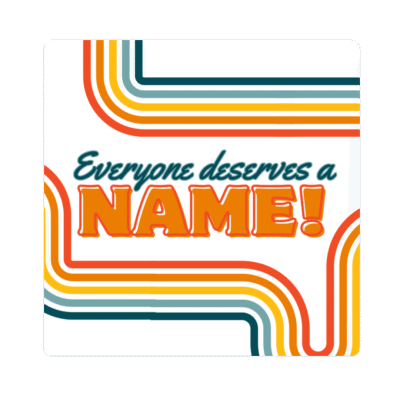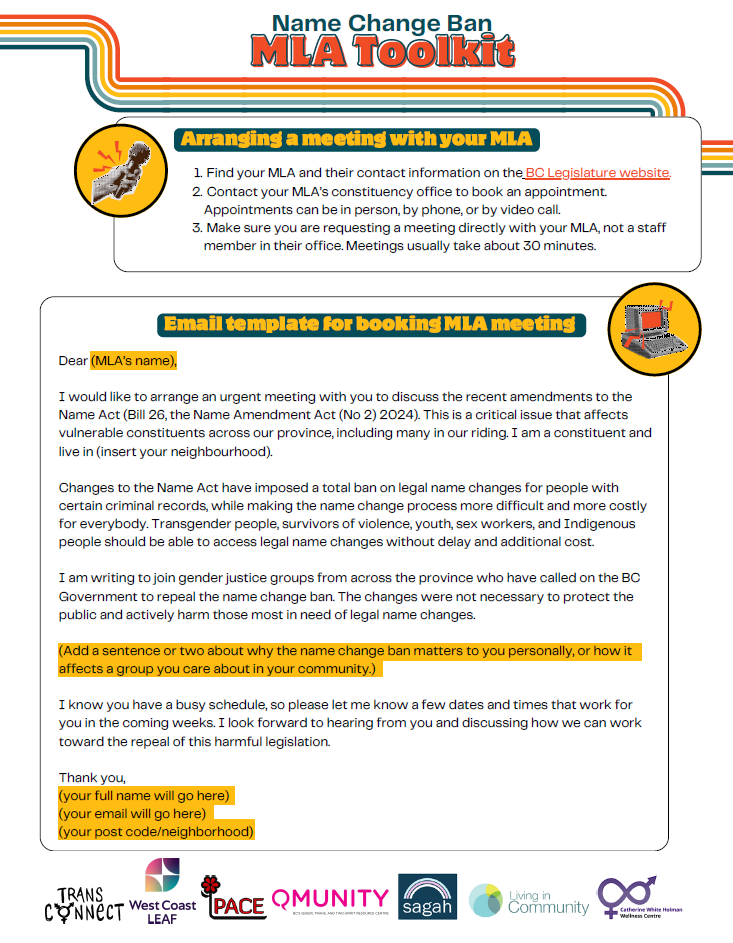
Repeal the changes to the Name Act

About the Name Act
The Name Act is legislation that creates the processes and rules for obtaining legal names changes in British Columbia.
In 2024, the BC government passed Bill 26, the Name Amendment Act (No 2) and changed the Name Act to ban access to legal name changes for people with certain criminal records.
Now, everyone applying for a legal name change, including all children over 12, have to pass a criminal records check. They also have to agree to let the BC’s Vital Statistics Agency (the government agency in charge of legal name changes) share their information with the RCMP. This causes additional costs and delays of around 4 months.
These changes will lead to human rights violations and create huge barriers for those needing to change their names, including trans people, sex workers, Indigenous people reclaiming Indigenous names, and survivors of violence.
Learn more about the impact of these changes in our backgrounder and join us in calling for the repeal of these changes by signing our petition.
